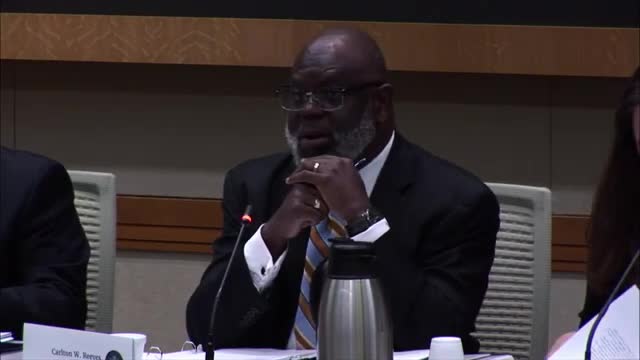Practitioners and defenders back retroactivity for grouping amendment; probation cites limited benefit
Get AI-powered insights, summaries, and transcripts
Subscribe
Summary
The commission considered whether an amendment to grouping rules should apply retroactively. Defenders and practitioners said retroactivity would correct circuit‑based disparities and affect a small number of cases; probation officers concluded the net change would be modest and recommended against retroactivity to preserve court resources.
A third panel addressed a guideline clarification to the grouping rules (often called the “grouping amendment”) and whether it should apply to already‑sentenced defendants.
Defenders and the Practitioners Advisory Group urged retroactivity on uniformity and fairness grounds. Adeel Bashir and other defense witnesses told the commission the amendment resolves a 7th‑Circuit issue and would primarily affect a narrow group of cases; they said reductions could be meaningful in individual cases. “Given available evidence, past experience, and the stakeholder support, we believe the commission should apply this grouping amendment retroactively,” Bashir said.
Manny Atwal, representing the Tribal Issues Advisory Group, also supported retroactivity and said it would promote consistent treatment of similarly situated defendants across districts.
But the Probation Officers Advisory Group recommended against retroactivity. POAG members said the likely number of cases that would change is nominal, many defendants had already been sentenced below guideline ranges, and that courts remain occupied processing the 2023 retroactive amendments. POAG’s written and oral testimony argued the judiciary’s limited resources should be prioritized for amendments with larger systemic impact.
Commissioners asked practical questions about overfiling and complexity. Defenders said the amendment is “straightforward” to analyze from PSRs and that triage systems reduce the number of contested filings. POAG responded that grouping questions can be fact specific, but acknowledged the amendment’s overall limited scope.
Ending: Commissioners thanked panelists and said they would consider the written record and testimony before voting.
